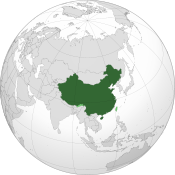Hong Kong chief executive invites opponent to television debate
Saturday, May 22, 2010

Hong Kong chief executive Donald Tsang has invited Audrey Eu, the head of the Civic Party, to a televison debate on the 2009 reform package. The invitation follows the recent so-called Five Constituencies Referendum which called for universal suffrage and the abolition of the functional constituencies.
Tsang says he is glad that Eu has accepted the invitation, and the debate will air on the seventeenth of June. However, Eu has said that Tsang should not use this debate as an excuse to avoid facing the public's concerns.
The action sparked critism from 'less extreme' pan-democratic political parties, such as the Democratic Party and other members of the Alliance for Universal Suffrage, who did not participate in the by-elections. Szeto Wah is worried that such an action would divide the pan-democrats. Martin Lee and Albert Ho have both denied that the television conference will have such an effect. Lee believes that Eu was a good choice as Ho is currently trying to compromise with the central government and was thus a less suitable candidate. Ho is also happy that Eu was invited. However, Rita Fan, who supports the television conference, said she "sympathised" with Ho for not being able to participate.
Only Eu and Tsang will participate in the conference, which caused a huge uproar in the political circles of Hong Kong. Eu is annoyed that public is unable to ask questions during the debate. Tsang replied that the public could participate by watching the television, while government representatives explained that this was because determining the eligibility of a person's entry was difficult, and it was easier for the two to debate fluently without the public asking questions. Eu has already inquired the public's opinion through Facebook. Lee Cheuk-yan scoffed, "[i]f that is the case, does that mean that everyone in the world can participate in the football matches by watching the World Cup?" Fan said such participation was "passive" and "one-sided" as the public was not allowed to ask questions during the conference.
Related news
Sources
- "特首談辯論﹕全民參與看直播 泛民斥笑話 范太同情何俊仁無份" — Ming Pao/Yahoo, 22-5-2010 (Chinese)
- "余若薇稱辯論會否造成分化要看泛民自己" — Commercial Radio Hong Kong, 22-5-2010 (Chinese)
- "集中火力 聚焦方案" — Sing Tao Daily, 22-5-2010(Chinese)
- "余若薇促特首勿借她過橋逃避面向公眾" — Commercial Radio Hong Kong, 22-5-2010 (Chinese)
- "余若薇要求政改辯論要有公眾提問" — Comerical Radio Hong Kong, 22-5-2010 (Chinese)
- "司徒華批評特首圖分化泛民" — Ming Pao, 22-5-2010 (Chinese)
- "何俊仁稱政改電視辯論不會分化民主派" — Commercial Radio Hong Kong, 22-5-2010 (Chinese)

